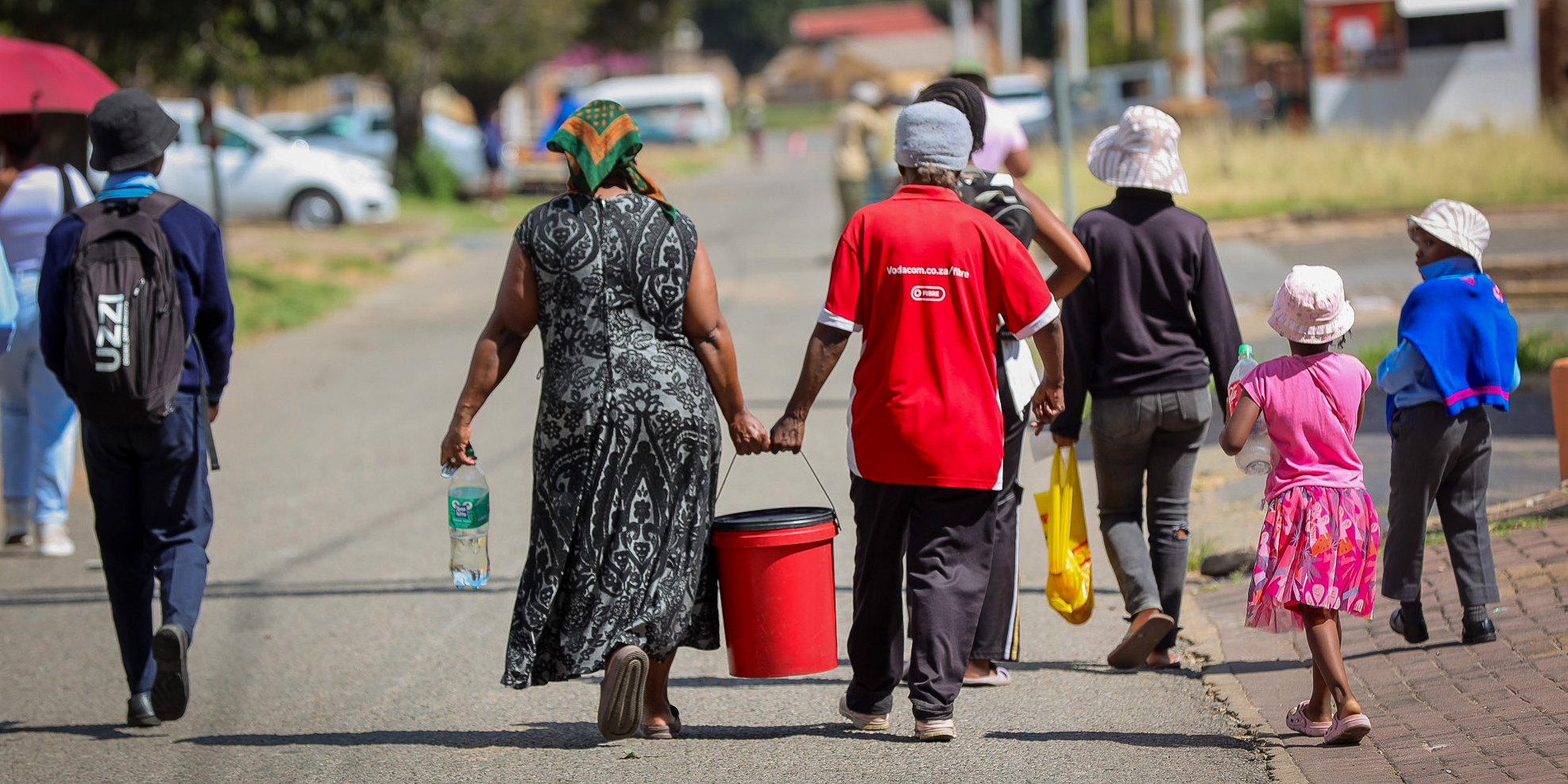The R4-billion that the City of Johannesburg swept from Joburg Water’s account has once again landed in the spotlight after representatives from the Office of the Auditor-General of South Africa (AG) revealed that the money diverted to the city exists on paper, but is not tangible, accessible cash.
This came to light on Tuesday night, 18 November, when the AG and National Treasury briefed the parliamentary committee on water and sanitation on its findings on the financial health of the City of Johannesburg.
Following a question from Democratic Alliance MP Stephen Moore, AG representative Msizi Mavundla said, “The cash balance of the city of Johannesburg is less than the R4-billion.”
“What we know as auditors is that the R4-billion is accounted for correctly. So in the books of the city, they do acknowledge that they owe Johannesburg Water the R4-billion, inasmuch as in the books of Johannesburg Water, there is an acknowledgement that there is a [figure of] R4-billion that they are being owed by the city,” Mavundla said.
/file/attachments/2984/Ferrial-Adam_1_101542.jpeg)
Speaking to Daily Maverick, WaterCAN executive director Ferrial Adam said she was disappointed in how both the Auditor-General’s office had framed the fate of the diverted R4-billion, emphasising that the money was not simply absent, but had been spent, with no clear account of how it was used.
“We’re saying that R4-billion was swept, and we are asking, how was it used? We still, till to this day, don’t know how it was used. So telling us that there is an IOU from the City of Joburg to Joburg Water and Joburg Water agreeing that, ‘yes, you owe me’, is not accountable. It’s not how you account for what has been done,” Adam said,
The environmental activist said that the diversion, while not technically theft, violated the Municipal Finance Management Act because it removed money approved by council for water infrastructure for other purposes.
Adam said that the R4-billion, if it had been left in Joburg Water’s accounts, could have significantly bolstered Johannesburg’s water infrastructure, preventing the current crisis marked by severe outages and heavy reliance on emergency water tankers. Johannesburg Water’s current capital allocation is only R1.7-billion, far below what was needed.
In its presentation, the National Treasury concluded that as a result of the sweeping arrangement, entities generating a surplus, such as Joburg Water, were unable to fulfil their financial obligations, such as paying service providers and contractors.
/file/attachments/2984/ED_584995-1_1_120872.jpg)
This had been the case in Johannesburg, as the AG’s Sindisiwe Zama highlighted, adding that Joburg Water had to ask the COJ for specific amounts to pay suppliers daily.
Zama said that in their engagements with Joburg Water, the entity indicated that while it received payments from the city, the money was either not received on time or the city did not send the entire amount.
Read more: Diversion of R4bn intended for Joburg Water sparks outrage and calls for mayor’s resignation
However, the AG also found that while the sweeping arrangement proved problematic for Joburg Water, it caused only 30% of the payment delays to service providers and contractors. The remaining 70% was attributed to inefficiencies within Johannesburg Water.
The DA’s Moore and other committee members disputed the AG’s assessment, claiming that in engagements with Joburg Water, managers at the entity implied that the sweeping arrangement caused more than only 30% of the payment delays.
Read more: Johannesburg’s dry taps see G20 glamour overshadowed by daily struggles for clean water
/file/attachments/2984/DSC_0967-2_1_113329.jpg)
Joburg Water’s decline
The AG report highlighted the links between financial mismanagement and critical risks to water service delivery in Johannesburg, with implications for the city’s ongoing water crisis.
Read more: Johannesburg’s dry taps see G20 glamour overshadowed by daily struggles for clean water
For WaterCAN’s Adam, the situation underscores the urgent need for targeted interventions, addressing both the financial mismanagement and the critical state of ageing water infrastructure, to safeguard Johannesburg’s water security and prevent further deterioration of service delivery quality.
/file/attachments/2984/ED_535008_1_257974.jpg)
Key revelations from the report
- A significant increase in ageing infrastructure problems, evidenced by a rise in water pipe burst cases from 20,729 in 2023/24 to 33,436 cases in 2024/25. This deterioration signals a worsening state of the water network, which further manifests in substantial water losses.
- Water losses, categorised into physical losses (leaks and burst pipes) and commercial losses (illegal connections and metering errors), remained alarmingly high, with total losses for 2025 amounting to R2.8-billion, representing 32.94% of the water supply.
- Physical losses were 23.72% (R2.031-billion), and commercial losses 9.22% (R790.1-million) as of June 2025, posing a tangible risk to uninterrupted water delivery if unaddressed.
- Material irregularities exposed included the pollution of water resources at the Goudkoppies Wastewater Treatment Works due to ageing and malfunctioning infrastructure.
- The report noted that the plant’s reduced operational efficiency, with rusted pipes, cracked concrete and ineffective effluent treatment processes, resulted in non-compliance with environmental laws and potential ecological harm.
- The water infrastructure has not been proactively maintained, leading to poor performance in restoring pipe bursts within 48 hours, achieving only 67% against a target of 85% in the 2023/24 financial year.
- The lack of maintenance or timely replacement has forced Johannesburg Water to spend more than R30-million on the provision of emergency water tankers, which is not recoverable from the community, further straining finances. DM




 The Auditor-General’s report has highlighted the links between financial mismanagement and critical risks to water service delivery in Johannesburg. (Photo: Gallo Images / Fani Mahuntsi)
The Auditor-General’s report has highlighted the links between financial mismanagement and critical risks to water service delivery in Johannesburg. (Photo: Gallo Images / Fani Mahuntsi)